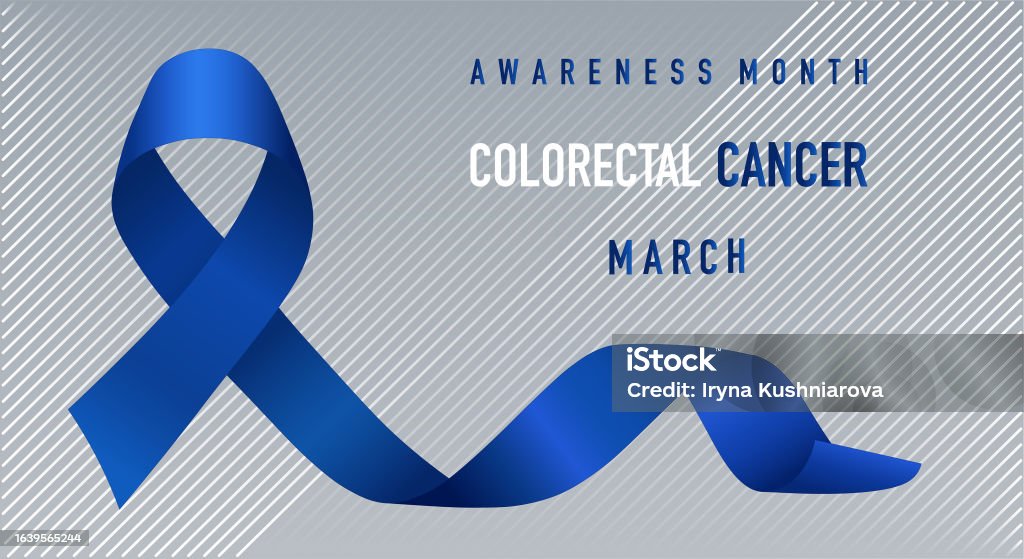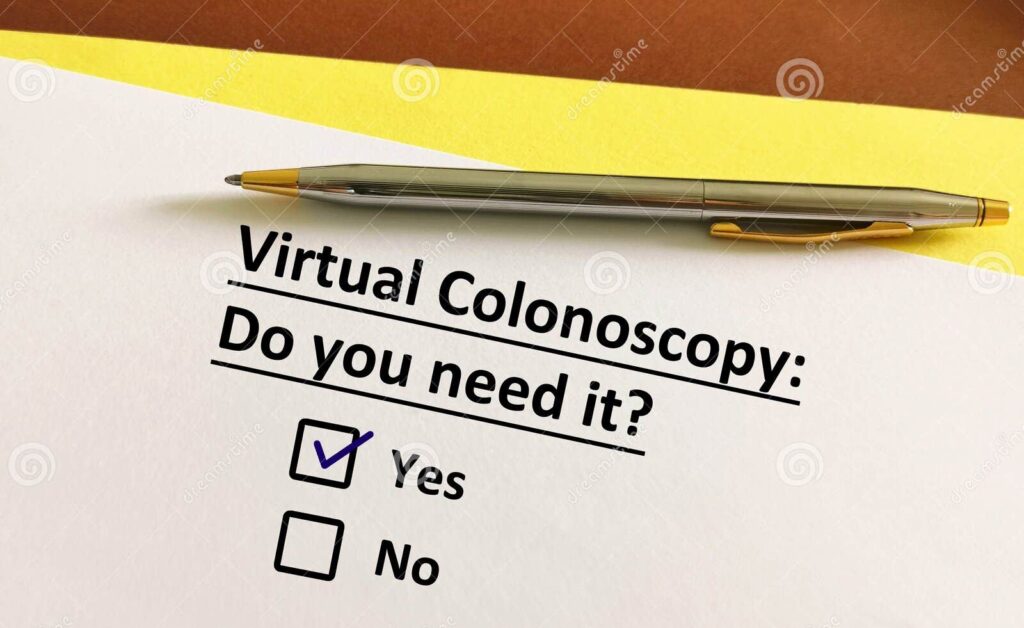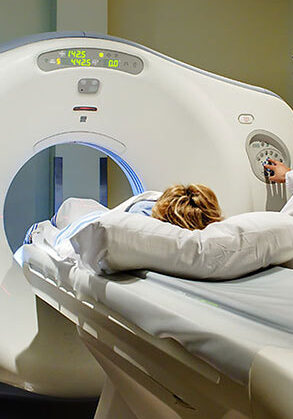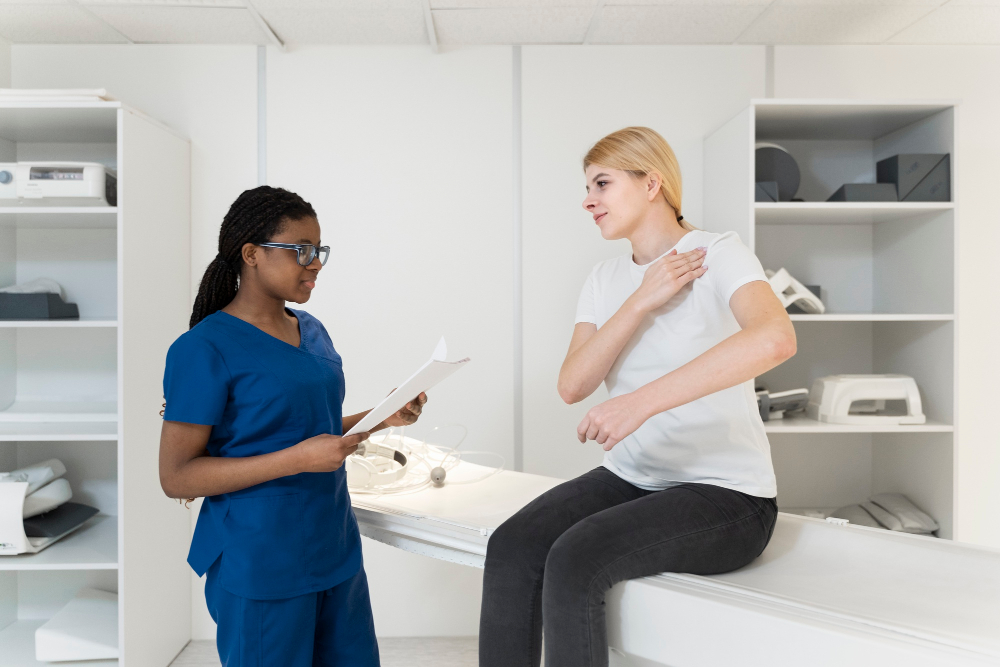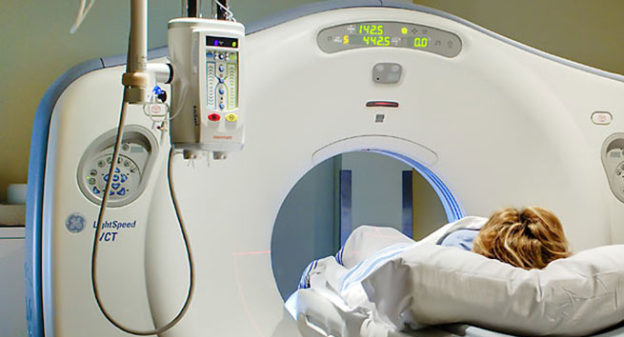Virtual colonoscopy
“The most common symptom of colon cancer is no symptom at all. Screening allows us to detect it”.
Robert Bresalier, M.D.
Virtual Colonoscopy is an innovative, non-invasive and advanced method for screening colon cancer. This examination can detect, quickly, in a safe manner and without sedation, pre-cancerous and cancerous growths in the colon and rectum.
Procedure and benefits
Using high-resolution ultra-fast computed tomography (CT-scan), several 3D images of the inside of the colon and rectum are obtained, allowing the visualizing on screen of the intestinal wall and precise navigation in specific areas. The data obtained are reconstructed using a specialized computer software that generates images similar to conventional endoscopic colonoscopy.
Due to the invasive nature of traditional colonoscopy, many patients are hesitant to undergo colon cancer screening. Virtual colonoscopy is an interesting and valid alternative. It is recommended to consider virtual colonoscopy as a primary diagnostic method to guide patients who need further diagnosis and direct them to traditional therapeutic colonoscopy.
Dr Lawrence Stein says; “We hope that this innovative, reliable and less invasive solution for colon cancer screening will encourage more people to get tested.”
Benefits:
- Detects over 90% of all significant polyps.
- Requires no sedation.
- Better tolerated and faster than conventional colonoscopy.
- Risk of perforation is extremely rare.
- Significantly superior to barium enema with respect to screening for pre-cancerous lesions (as demonstrated by several studies).
The main indications:
- Complement of an incomplete conventional colonoscopy.
- Screening for colon cancer (alternative to conventional colonoscopy in patients who are reluctant to undergo this test).
Understanding colon cancer and the examination
Colon cancer is a very devastating cancer, which is the second leading cause of cancer mortality in the population. It is manifested by a lesion, at first benign, measuring just a few millimeters, which grows slowly and can grow for several years before becoming a 1cm or larger polyp, or before becoming cancer. So, this examination is used to detect small benign lesions called polyps which can be removed (by traditional optical colonoscopy), thus preventing the cancer.
Process and preparation
Usually, a virtual colonoscopy lasts about 30 minutes for the visit. However, only 10 minutes are spent in the CT-scan room.
Patients lie on their back on an examination table. The technician inserts a thin tube (rectal probe) of 1.5 inches long in the anus and the rectum to inject carbon dioxide (CO2) to allow the expansion of the colon and thus, better visualization. This can cause a sensation of bloating in the abdomen. Then, the table slides through the CT-scan for a few seconds and several images are collected. The procedure is repeated with the patient lying prone or turned sideways. After the test, the radiologist evaluates the results to identify anomalies in the colon and in the adjacent organs.
Virtual Colonoscopy requires a special preparation, to ensure the bowel is empty. A diet low in residues begins two days before the examination and a liquid diet is required the day before the appointment. The patient must also take laxatives, and barium or iodine orally. We provide the barium and iodine. The examination, with a total duration of 30 minutes, takes place on the third day. Everything is explained when making the appointment.
The Reasons for Undergoing this Examination
Virtual colonoscopy is used to check for colon cancer in people who are at least 45 years old.
Your health care provider may suggest a virtual colonoscopy if you:
- Are at an average risk of colon cancer.
- Do not want medicine that puts you to sleep, or you need to drive after the test.
- You don’t want to have a colonoscopy.
- Are at risk of colonoscopy side effects, such as a lot of bleeding because your blood doesn’t clot in the usual way.
- Have a bowel blockage.
You aren’t eligible for a virtual colonoscopy if you have:
- A history of colon cancer or unusual tissue clumps called polyps in your colon.
- A family history of colon cancer or colon polyps.
- Chronic painful and swollen bowel disease called Crohn’s disease or ulcerative colitis.
- Acute diverticulitis.
Studies have shown that virtual colonoscopy finds large polys and cancer at about the same rate as usual colonoscopy.
Because virtual colonoscopy looks at the entire abdomen and pelvic area, many other non-colonic diseases may be found. Problems unrelated to colon cancer such as irregularities in the kidneys, liver or pancreas can be detected. This may lead to more testing.
You need an appointment for a virtual colonoscopy
If you require an appointment for a virtual colonoscopy, please don’t hesitate to submit your request. Our exceptional team will reach out to you promptly. Furthermore, Radimed provides Virtual Colonoscopy for individuals who may be frail or elderly and cannot tolerate the preparation necessary for a conventional colonoscopy. Referred to as a “Prepless Colonoscopy,” this method has demonstrated accuracy in detecting larger polyps, some of which may be cancerous or precancerous.


